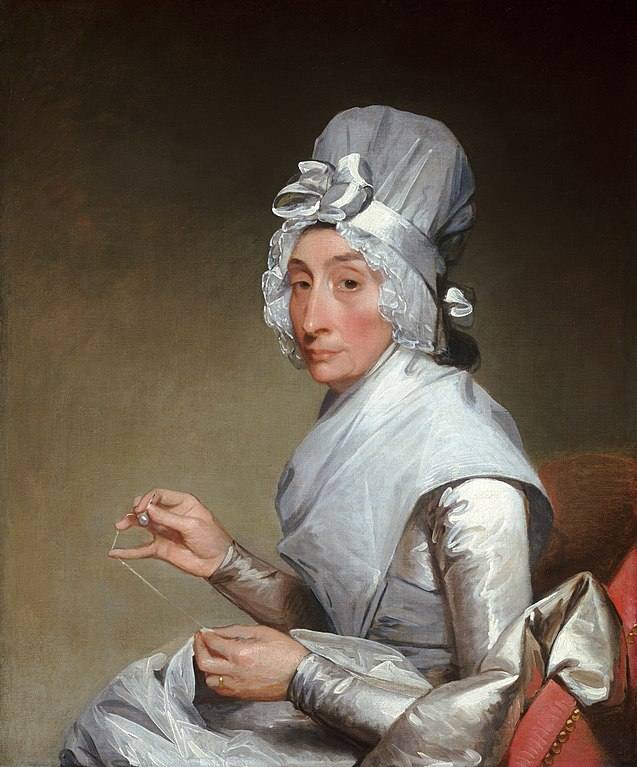settings
Great Expectations vocabulary
361 vocabulary words, including people, places, music, artists, etc.
help & settings
[x]
-
mob-cap
-
► definition
Definition:a round, gathered or pleated cloth (usually linen) bonnet consisting of a caul to cover the hair, a frilled or ruffled brim, and (often) a ribbon band, worn by married women in the Georgian period, when it was called a "bonnet". These caps were always gathered to a flat, often curved, brim. The caul had a flat bottom and curved top. The bottom was typically gathered to fit the back neck with a drawstring, while the curved sides and top were tightly gathered and stitched to the brim, which typically had some curves, too. Originally an informal style, the bonnet became a high-fashion item as part of the adoption of simple "country" clothing in the later 18th century. It was an indoor fashion, and was worn under a hat for outdoor wear.Text from Wikipedia, used under the Creative Commons Attribution-ShareAlike License; painting: by Gilbert Stuart (1793) https://commons.wikimedia.org/w/index.php?curid=159195
painting: by Gilbert Stuart (1793) https://commons.wikimedia.org/w/index.php?curid=159195
► uses
Uses:
She had a forward, self-satisfied air, and her mob-cap trimmed with a triple row of lace, her silk apron, and her black lace fichu were decidedly not in harmony with the idea he had conceived of a sedate, serious-minded widow.
George Sand. The Devil's Pool (George B. Ives translation) (1901)
---
Her hair, which was grey, was arranged in two plain divisions, under what I believe would be called a mob-cap; I mean a cap, much more common then than now, with side-pieces fastening under the chin.
Charles Dickens. David Copperfield (1850)
---
I think Miss Pocket was conscious that the sight of me involved her in the danger of being goaded to madness, and perhaps tearing off her cap,—which was a very hideous one, in the nature of a muslin mop,—and strewing the ground with her hair,—which assuredly had never grown on her head.
Charles Dickens. Great Expectations (1861)

